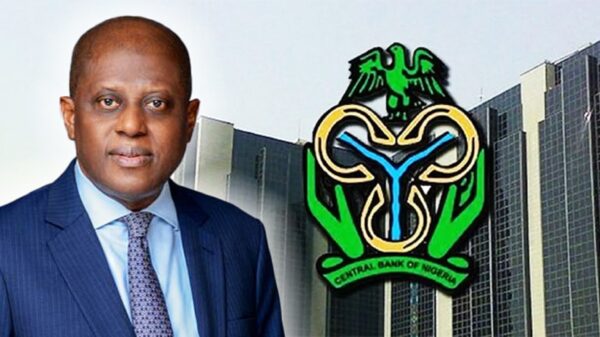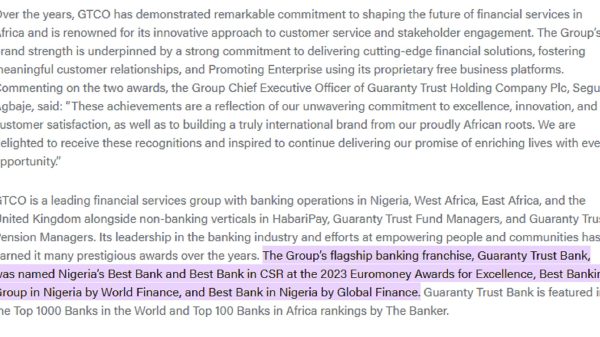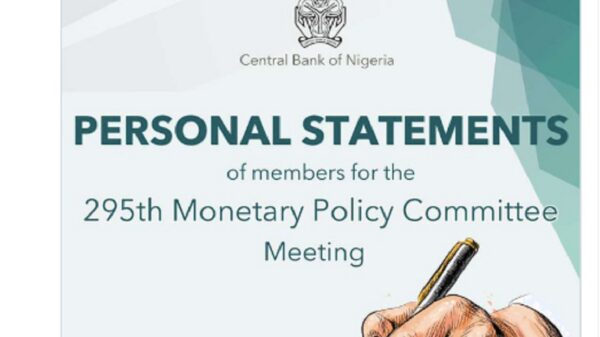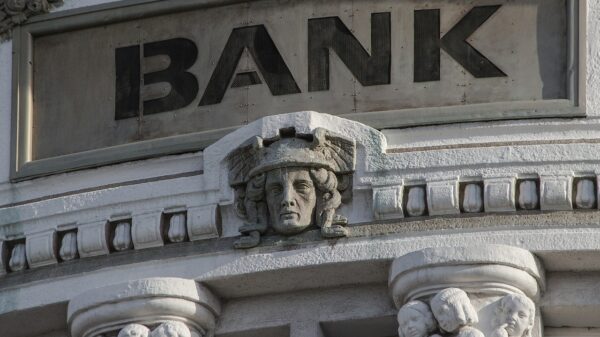Banks credit to Nigeria’s private sector increased by N1.29 trillion in the first quarter of 2021 to stand at N31.44 trillion. This is according to data obtained from the Central Bank of Nigeria (CBN).
This is in line with the CBN’s continued effort to compel Banks to boost their credit to the real sector of the economy so as to stimulate Nigeria’s economic growth.
According to the analysis of the data from the apex bank, credit to the private sector increased from N30.15 trillion recorded as of December 2020 to N31.44 trillion as of the end of March 2021. Meanwhile, credit offered to the government declined by N410.7 billion in the review period.
Highlights
- Total credit to the economy rose by N880.65 billion in the period under review, from N42.55 trillion as of December 2020 to N43.44 trillion at the end of Q1 2021.
- Meanwhile, credit allocation to the government declined by N410.62 billion from N12.4 trillion to N11.99 trillion.
- It is worth noting that the total currency in circulation declined by N99.73 billion to stand at N2.81 trillion as of March 2021.
- According to the CBN’s MPC communique, gross banking sector credit at the end-March 2021 stood at N23.53 trillion compared with N22.68 trillion at end-December 2020.
A further breakdown shows that commercial & merchant banks disbursed N660 billion in the period, microfinance banks (N130 billion), development finance institutions (N50 billion), and primary mortgage banks and finance companies disbursed a total of N10 billion.

Why the increase
The CBN has continued to move to quicken Nigeria’s economic recovery from the recession witnessed in the third quarter of 2020, due to the pandemic-induced lockdown by encouraging banks to offer more credit to the real sector of the economy.
The apex bank noted that the liquidity condition in the banking system in the review period was determined by several factors including; fiscal disbursements and withdrawals by states and local
governments, periodic CRR debits, foreign exchange interventions, Open Market Operations, and maturing CBN Bills, the net effect of which imposed liquidity constraints on the banking system.
A credit survey report by the CBN earlier in the year had projected an increased supply of secured and unsecured credits to households in Q1 2021. Also, The overall availability of credit to the corporate sector increased in Q4 2020 and is expected to increase in Q1 2021, due to “Changing sector-specific risk and market share objectives”.
However, the apex bank continued to urge banks to sustain its tight prudential regime in order to further reduce their non-performing loans in the industry.
What this means
The recent increase in credit allocated to the private sector is an indication of increased economic activity as Nigerians work through the economic hardship experienced in the major parts of the previous year. Recall, that Nigeria’s GDP grew marginally in real terms by 0.51% in Q1 2021.
However, a big question is, at what cost are these credits being granted? To answer this question, a recent empirical study reveals that despite the CBN’s Loan-to-Deposit ratio policy, lending rates by Nigerian commercial banks did not drop.
Article originally published here.


















































You must be logged in to post a comment Login